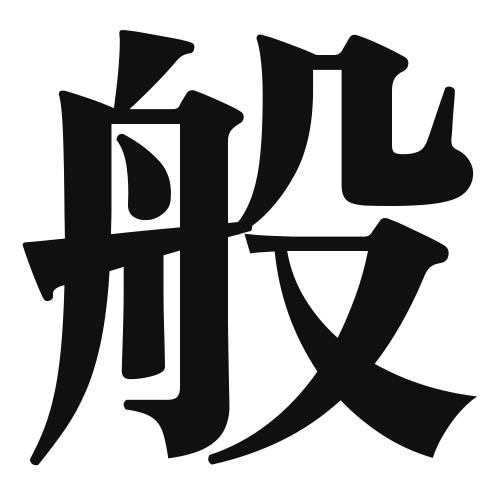1. Overview of Meaning
The kanji “般” (han) generally means “to spread” or “to circulate.” It is often used in contexts related to various kinds of distributions or generalizations.
2. Formation and Radical
Formation of the Kanji: The kanji “般” is classified as a compound character (会意文字), which combines different elements to convey a specific meaning. It consists of the radical “水” (water) and the phonetic component “般,” which together suggest the idea of something flowing or spreading.
Radical: The radical for “般” is “水,” which is associated with water and fluidity, reinforcing the concept of spreading or circulation.
3. Examples of Usage
Common Words and Phrases: Some frequently used words that include “般” are:
- 一般 (ippan) – general, ordinary
- 般若 (hannya) – wisdom, often used in Buddhist contexts
Example Sentences in Daily Conversation:
- この問題は一般的なものです。 (Kono mondai wa ippan-teki na mono desu.) – This problem is a general one.
- 彼は般若の教えを学んでいます。 (Kare wa hannya no oshie o manandeimasu.) – He is studying the teachings of wisdom.
4. Synonyms and Antonyms
Similar Kanji: A kanji with a similar meaning is “普” (fu), which also conveys the idea of universality or generality, but it is more focused on the concept of “common” or “widespread.”
Opposite Kanji: An antonym for “般” could be “特” (toku), which means “special” or “particular,” indicating something that is not general or widespread.
5. Cultural and Historical Background
Relation to Japanese Culture: The kanji “般” is often used in Buddhist texts, reflecting its significance in spiritual and philosophical discussions within Japanese culture.
Proverbs and Idioms: One common phrase is “般若心経” (Hannya Shingyō), which refers to the Heart Sutra, a key text in Mahayana Buddhism that embodies the essence of wisdom.
